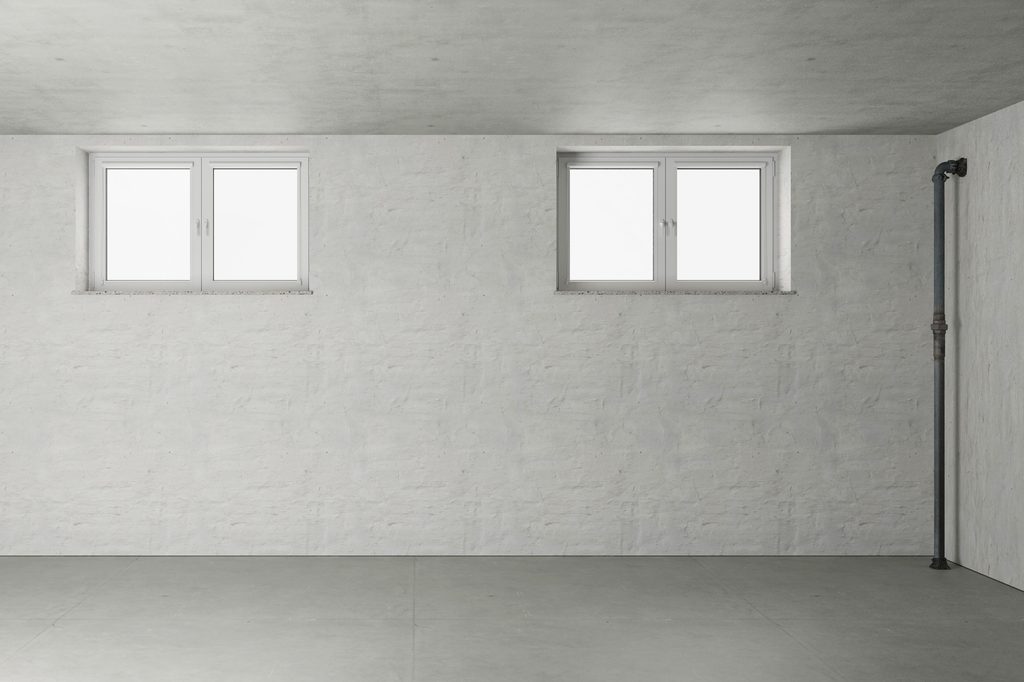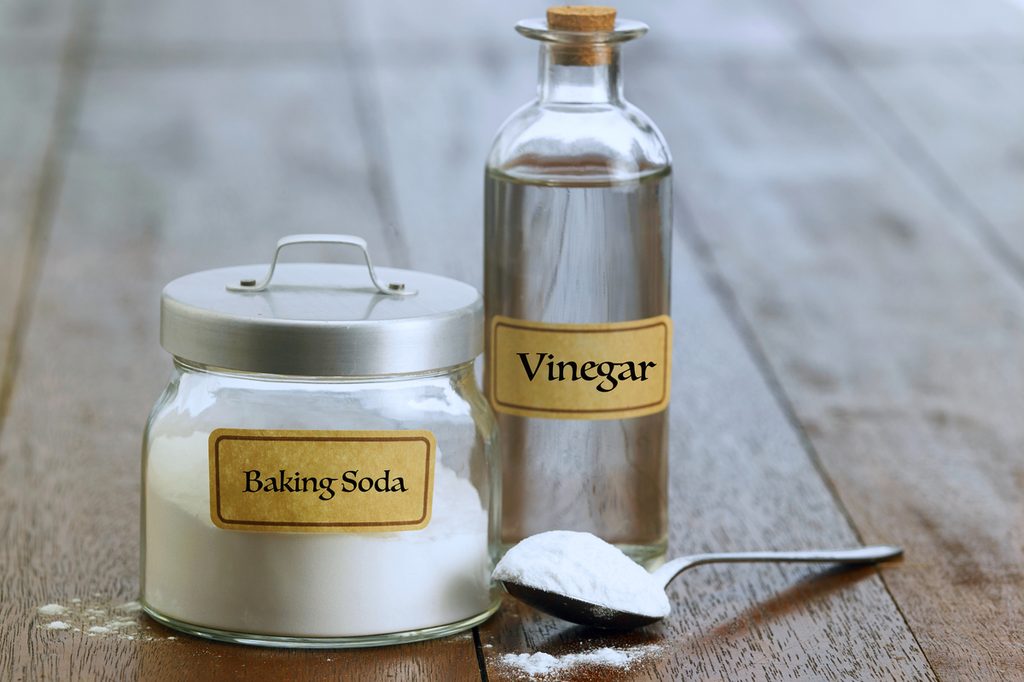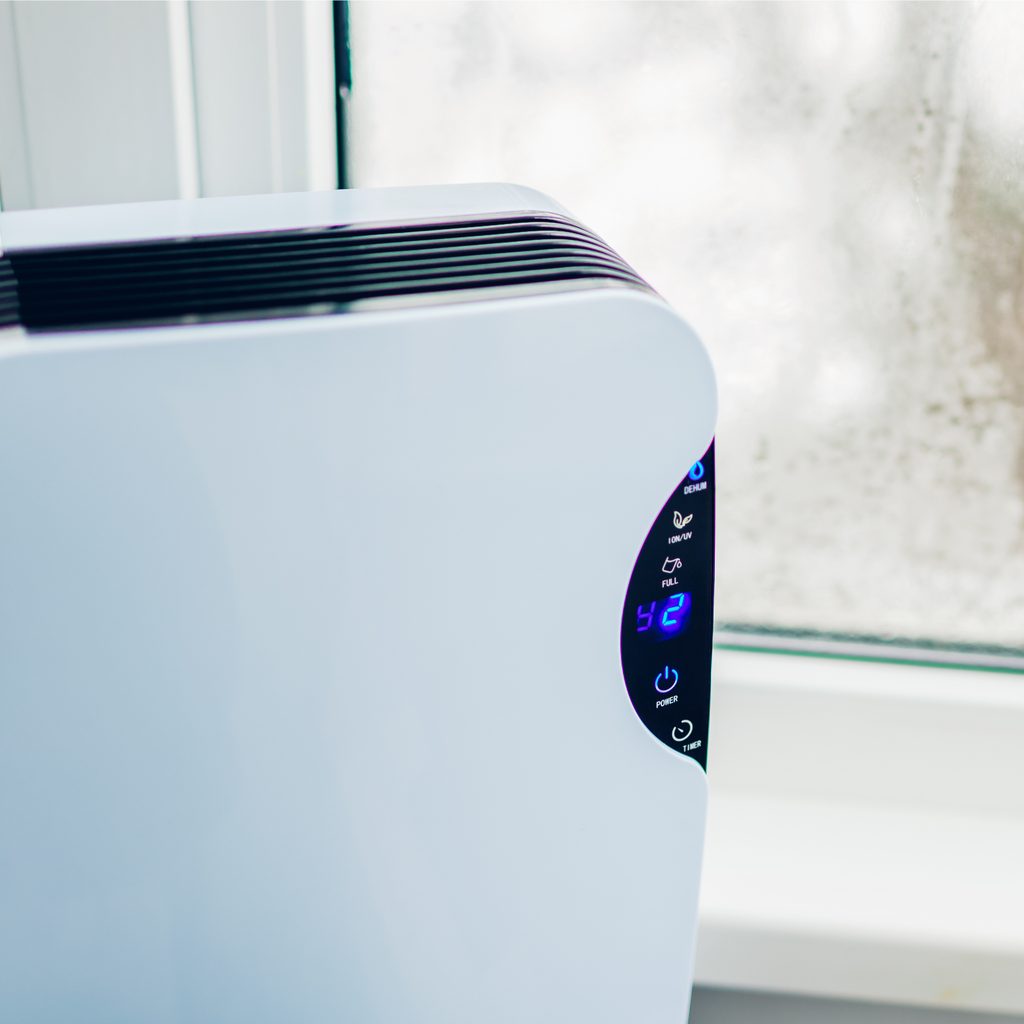Do you avoid spending time in your basement because of its unpleasant odors? Whether it’s finished or not, basements are typically cool, damp, and have little airflow going through them, which are all factors that contribute to its musty smell. Unfortunately, it takes more than general cleaning practices and air fresheners to rid the space of mustiness for good. Take a look at some of these tried-and-true methods for how to get rid of musty smell in basement spaces, so you can keep it smelling light, airy, and fresh.
1. Find the culprit of the musty smell

If you smell that common musty stench, the culprit is often mold or mildew. Since basements tend to be damp and have little airflow, they are common hot spots for mold and mildew growth. The first step in preventing further growth by sealing any leaky spots and inefficient drains.
Leaking windows and doors
Check your basement’s exterior doors and windows for signs of moisture. Since leaks on the first floor can often drain into the basement, check the windows and doors on the main floor as well. If you find moisture around these entry points from rain or condensation, re-seal the area or call a professional to repair it.
Leaking pipes
Whether pipes are visible in your basement or not, you need to check them regularly for leaks. Examine any water and sewage pipes for signs of leaks and repair any cracks or poor seals. If plumber’s tape or epoxy putty can’t repair the leak, it’s time to call a professional.
Dried-up drains
Basement floor drains direct water out of the home to keep the floors dry and prevent them from flooding. The stagnant water in this drain also traps bad odors emanating from the sewage system below. However, these drains can dry up from infrequent use, releasing stench into the air. If you notice smells arising near your floor drains, just pour a few cups of water into the drain to block the gases from escaping.
2. Clean up the basement

Once you’ve found the source of the odor and made any necessary repairs, it’s time to clean up any dank water, mold, or mildew. If the smell is particularly offensive or the growth is expansive, you may need to call an expert for professional mold and mildew removal.
Get rid of mold and mildew
Products like bleach, vinegar, hydrogen peroxide, and even tea tree oil are some of the best at removing pesky fungus. Whether you decide to go the natural or chemical removal route, tackle your mold and mildew before it spreads and causes more issues.
Wash and mop all surfaces with bleach
Now it’s time to deep clean. Start by wiping down all surfaces with a bleach solution. Move all of your furniture and storage out of the way so you can sweep and mop underneath them.
Steam clean carpets and fabric furniture
Carpets and fabric in your basement absorb moisture from leaks or flooding and hold on to that musty smell for ages, so it’s crucial to tackle these areas as well. Steam clean your basement’s carpets and furniture upholstery to rid them of that stale stench once and for all.
Declutter storage areas
Decluttering your basement is an essential step in eliminating musty odors. Old books, paperwork, and clothes tend to absorb moisture and odors, exacerbating the mustiness. By purging these items, you remove potential sources of the smell and create a cleaner, fresher environment. Sorting through your belongings and discarding or donating what you no longer need can significantly reduce the musty scent, making your basement more pleasant and usable.
3. Deodorize the basement

Ridding your basement of the source of foul odors won’t always get rid of the smell entirely. The room also needs lots of ventilation to banish the smell once and for all. Speed up the deodorizing process by placing containers around your basement that are filled with odor-absorbing materials like kitty litter, baking soda, vinegar, or even an industrial-strength moisture and odor absorber like DampRid.
4. Reduce the humidity in the space

To prevent the musty smell from eventually returning, reduce the moisture in the space regularly. Run a dehumidifier in the space every few days to keep the humidity in your basement below 55%, — above which is a prime condition for mold growth. You can also run oscillating fans to increase airflow.
With a little regular maintenance, you can have a welcoming and fresh-smelling basement that’s a perfectly pleasant space to hang out in. With the steps we’ve reviewed, you can find the source of the mustiness, reduce moisture, and banish odors once and for all.





